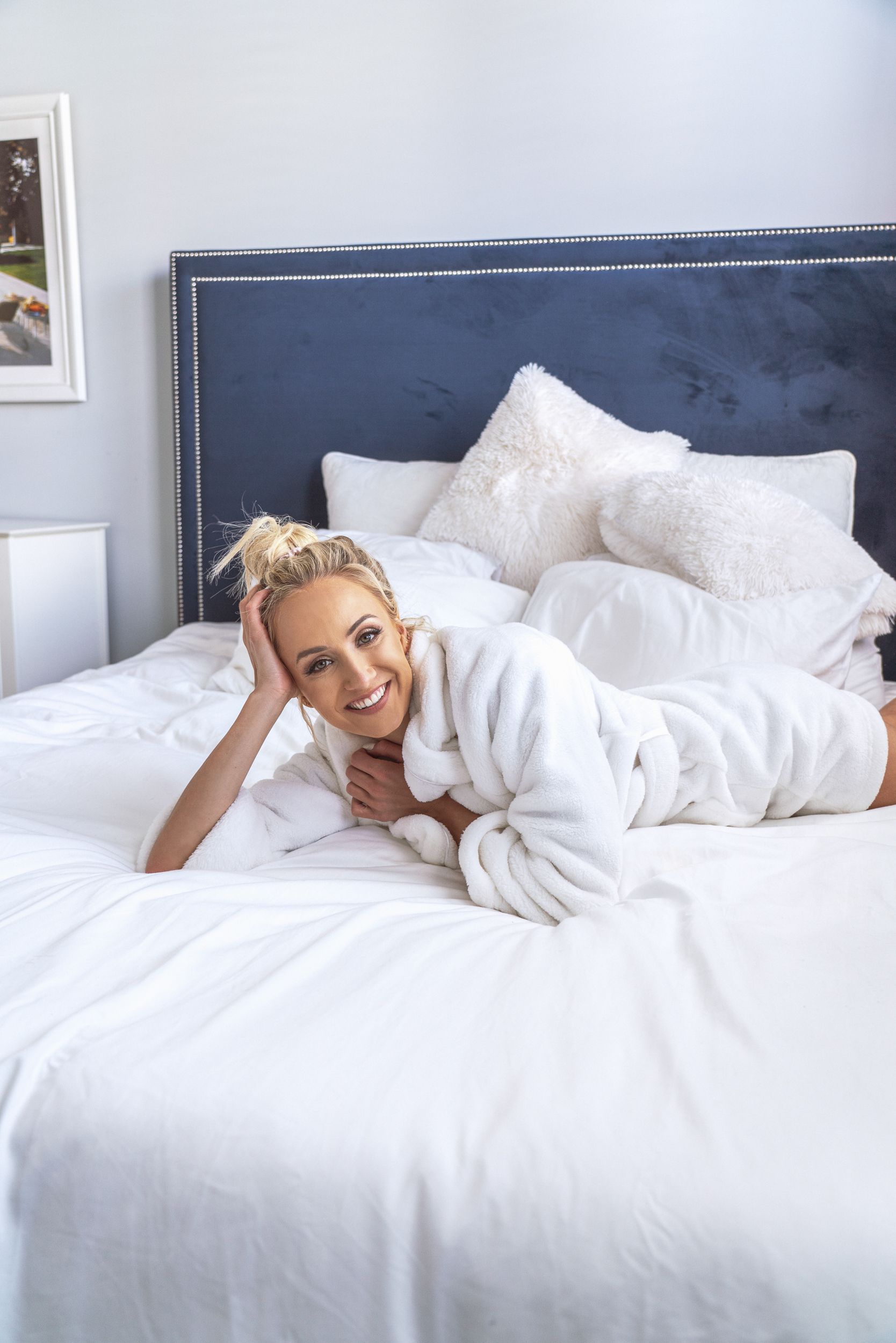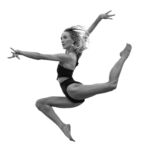If you follow me, you know how much I’m on the go — whether I’m traveling for work, running around to meetings in Dallas, or exploring my favorite cities or new destinations. During my years as a professional athlete, I learned firsthand how important the relationship is between restorative sleep and recovery, and now, it’s no different. Even though I’m not competing for a medal, if I want to get everything on my list done well, I need my sleep! Since it’s so important to high performance in every area of life, I wanted to share my tips for getting a good night’s sleep.
1. MAKE YOUR BEDROOM A SLEEP OASIS:
For me, this starts with a great bed. Not only do I make sure the temperature in my room isn’t too hot or too cold (between 60-71°F), but I try to choose a mattress and bedding that give me the best chance of deep — or slow wave — sleep. During this phase, our breathing becomes slower and our brain rests, so blood can flow more easily to the muscles and help with tissue repair. I recently tried a Molecule CopperWELL Mattress, which is made of a memory foam infused with copper. Not only does it adjust to support different parts of my body, but the copper is a natural microbial agent that resists bacteria, allergens, odor, and mold. The mattress is also built for high airflow, which keeps my body temperature balanced. There’s nothing worse than waking up drenched in sweat, or with freezing toes! I’ve found this mattress gives me a cool, clean, night’s sleep.
2. ESTABLISH A BEDTIME ROUTINE:
I realized I get better sleep when I have a nightly pattern that lets my body know it’s time to wind down. For me, that means trying to get in bed around the same time every night, dimming the lights, putting my phone on Do Not Disturb, lighting a candle, and reading a book to calm my mind. Incorporating a bath also works wonders!
3. DITCH THE ELECTRONICS:
This one is hard, but it really makes a difference! I try to put the screens down an hour before I go to bed — whether that’s my phone, laptop, or watching TV. If I do this, I’m much more likely to fall asleep easily, because I’m minimizing my exposure to blue light, which tricks our brains into thinking it’s daytime. I find it helps me have deeper, more restorative sleep.
What are your tips for better sleep? Let me know in the comments below!




share.